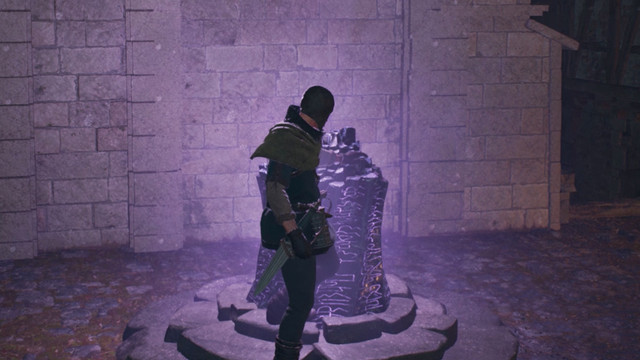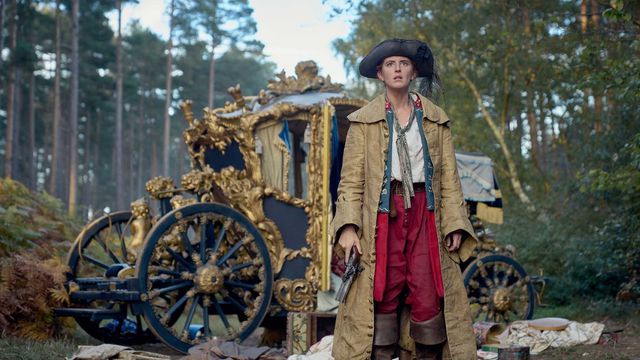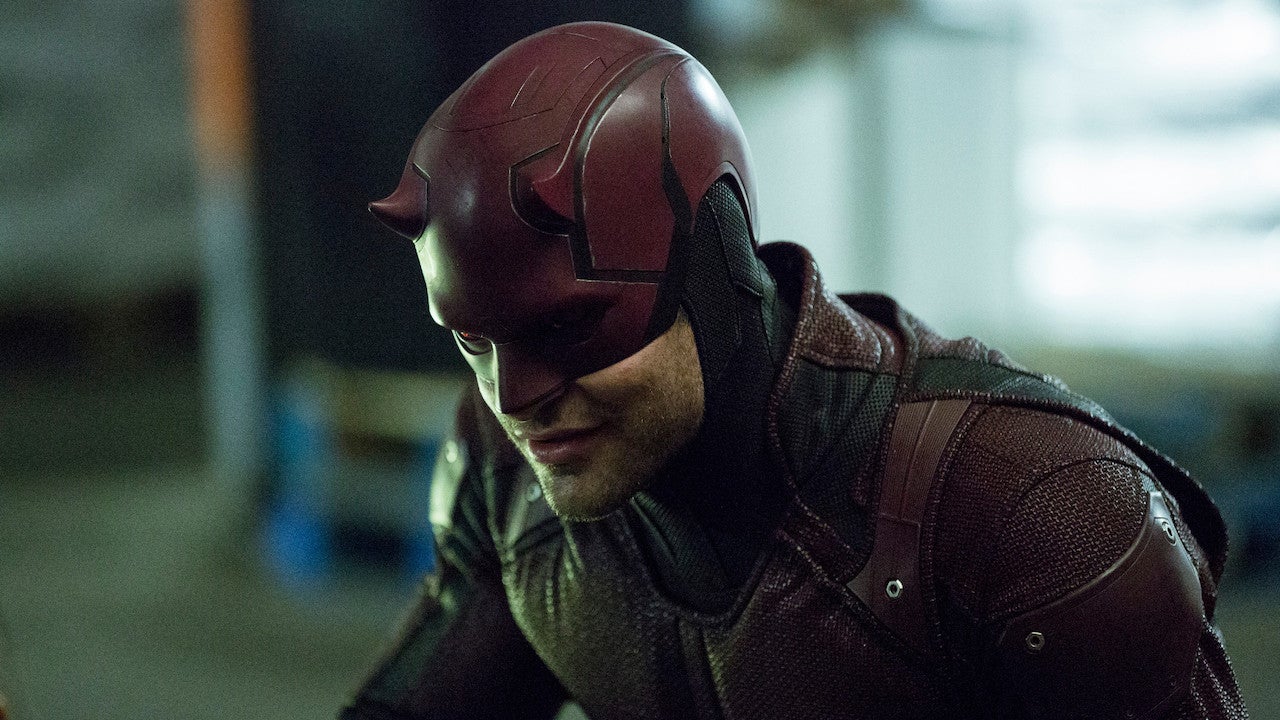This article contains spoilers for Fallout on Prime Video. If you haven't checked it out yet, check out our spoiler free piece: Fallout needs to keep the wasteland weird!
With all due respect to the Brotherhood of Steel and the bedraggled remnants of the New California Republic, the Fallout series is just more fun when we’re hanging out with some freaky little guys. I had my fingers crossed going into Prime Video’s series that showrunners Geneva Robertson-Dworet and Graham Wagner would follow through on their promise to embrace the weirder side of Fallout, and our visit to Vault 4 and its eclectic community of mutants was a big step in the right direction.
But Vault 4 is more than just a stop on Lucy and Maximus’s path to justice. How the Fallout show deals with mutants is also a neat little Rosetta Stone for what the series is willing to do to carve out its own space in Fallout canon. And better yet, it’s also a harbinger of the types of factions we might see in future seasons of the show.
In Episode 6, we accompany Lucy (Ella Purnell) and Maximus (Aaron Moten) in their detour to Vault 4, where they find an idyllic community of Shady Sands survivors and mutants. At first, everything seems wonderful, and Lucy is able to convince Maximus to accept his surroundings and enjoy the creature comforts available to him. But before long, Lucy’s curiosity gets the better of her, and she takes an unauthorized trip to Sector 12 where she finds the – bum bum bum – horrible secret behind Vault 4.
Or at least, so she thinks. The big twist of the arc – revealed in full in Episode 7 – is that Vault 4 has been fully reclaimed by the descendents of genetic testing. They are exactly as they appear on the tin: a friendly group of survivors who look after each other through thick and thin. While they might banish Lucy and Maximus to the surface world — I mean, they’re not monsters – they also give them two weeks of supplies and a courier to help them carry it to the surface.
It’s a great detour, and a wonderful showcase for both Chris Parnell – at his most Chris Parnell-ish – and Palestinian writer-director Cherien Dabis, who steps in front of the camera (and completely sells both the set-up and resolution of the story). But this one storyline is more than just a diversion: it tells us an awful lot about where the Fallout show could be heading and how the showrunners will handle that all-important balance of comedy and drama.
Don’t Hate, Mutate
Setting aside creatures like ghouls and super mutants – more on that in a second – human mutations are a somewhat rare occurrence in the Fallout universe. Yes, if you play enough games in the franchise, you will find a community or two cursed by their proximity to an atomic blast, but given the high levels of radiation in the wasteland, these outcomes are surprisingly scarce. Most of the (organic) humanoids you encounter in the wasteland fall into neat little buckets, and there is very little crossover between humans and their ghoul counterparts.
In fact, most mutations players will encounter are the ones they do to themselves. In Fallout 3, you can choose perks when you level up that give your character mutation-flavored benefits. These benefits are made even more explicit in Fallout 76, Bioware’s underrated MMO-lite set in post-war Appalachia. Want to grow talons or give off a blast of radiation when you’re hit at close range? Absorb enough rads and you, too, can harness the power of unnatural selection!
So a community of obvious mutants – as well as Maximus’s comments that mutants are common in the wasteland – is a nice little twist on the Fallout formula. Why does that matter for the future of the franchise? Two reasons.
The most obvious hook, of course, is that Vault 4 suggests a willingness to explore super mutants in future seasons of the show. Super mutants are one of the greatest threats – and, in a few cases, some of the great heroes – of the wasteland, the result of ongoing efforts to genetically engineer a race of post-humans who could thrive aboveground in the aftermath of the Great War. If you’ve tangled with a super mutant in your campaigns, you probably have the save points to show for it, and the presentation of practical power armor gives us hope that Fallout’s production crew will also emphasize practical character design with super mutants.
If you’re a retired basketball player or an actor over seven feet tall, now is the time to have your agent check in with the Fallout casting department. Seriously. The series finale even has a scene during the “corporate council” where the West-Tek representative daydreams about using their assigned vault to create a race of super mutants. There’s foreshadowing, and then there’s the showrunners blatantly calling their shot. Super mutants are definitely happening.
Jokes With a Half-Life
But Vault 4 also shows the creative team’s willingness to take bigger swings when it comes to Fallout lore. For the most part, Fallout remains relatively grounded in a few human factions and the evil manipulation of a handful of Vault-Tec characters. Vault 4 gives the showrunners an opportunity to lean into the absurd side of the wasteland without overtly compromising the aboveground world they’ve created. It’s an impressive balancing act for creators, one that demonstrates that they have a vision for what California (and beyond) would look like, but they’re going to dial up the humor and color whenever and wherever possible.
Narratively, Vault 4 offers Lucy a valuable lesson about her own prejudices and the types of people who came before her – and Fallout never misses an opportunity to develop those narratives in tandem, using pre-war Cooper Howard, Vault 33, and modern-day Lucy to slowly unfurl the Fallout canon before us. But Vault 4 also reminds us that the mutations and rituals of the future, while alien to some, are more commonplace than factions like the Brotherhood of Steel and Vault-Tec would have us believe.
The existence of mutants – hell, the flourishing of mutants – in the Fallout show promises more colorful communities, more mutated threats on the horizon, and a willingness to improvise on the source material. Perhaps in delving a little bit more into mutations, Prime Video’s Fallout can circle back around to the kinds of post-apocalyptic movies that inspired the franchise in the first place. And at the very least, Fallout seems poised to unleash some of the fiercest super mutant warriors of the wasteland on our poor unsuspecting souls. Guard Dogmeat with your life, fools.









